
Close


Two days to learn about the latest QA trends, connect with experts, and explore how quality is implemented in real-world projects.
El 9 y 10 de septiembre de 2025 te invitamos a vivir la experiencia Testearla.
Join this edition designed to share knowledge, challenges, and best practices that are shaping the direction of the industry.
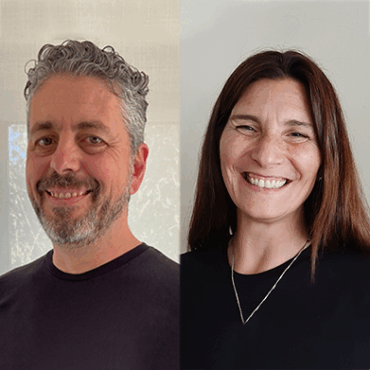

Activity in English
Hype or not, GenAI seems to be staying with us, forever changing humanity and how we do our jobs. Those who jump on the bandwagon too late, will struggle to speed up to reach technological advancement. On the other hand, the situation is not as bad as many say: GenAI is not replacing humans, and it's not rocket science that people would struggle to pick up quickly. On the other hand, people with new, relevant skill sets will thrive over those who decide to keep following the old ways. As usual, history holds the answer to how change happens, and how it impacts us, individually and as a society. Péter invites you to learn from other Hungarians: inventors, players and musicians. He will show how you can adapt to this new way of living, and why it's so important to pick up hands-on knowledge in prompt engineering and related areas. Péter will bring his practical experience working with EPAM's AI/RUN teams, and show approaches and a mindset that you'll be able to bring home and leverage into your work as well.
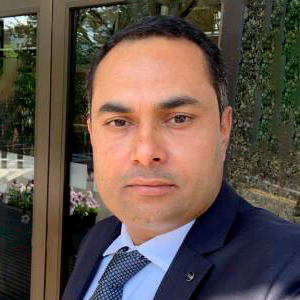
Activity in English
IBM Quality Engineering enables organizations to quickly and efficiently deliver quality products by leveraging a unique optimization, automation and cognitive capabilities leveraging a clients own existing knowledge base and reusable IBM industry assets.

Activity in English
Join us for a hands-on, insight-rich workshop where theory meets practice through real-world case studies from Model Context Protocol (MCP) case studies in QA World. In this session, we'll explore how we can build MCP for different QA tools and practices and integrate into our QA pipeline. From UI functional testing to performance testing w will uncover principles and ways to boost your team's productivity and make them AI super heroes. What You'll Learn: - Proven approaches to designing scalable and maintainable test automation frameworks. - How MCPs integrate automation into CI/CD pipelines for continuous quality. - Lessons learned from real-world challenges—what worked, what didn't, and why. - Tooling insights: from Selenium and Playwright to Grafana, Azure DevOps and beyond. * Activity in English

Activity in Spanish
How an OpenAPI specification can open up multiple testing paths. In this talk, we explore the multiverse of API testing, where a single OAS allows us to automate functional, performance, contractual, mocking, and security tests, among others. Through practical examples and with the help of AI and tools such as Postman, Bruno, Karate, k6, Prism, Dredd, and automated environments in Docker and CI/CD, we will show how to transform a definition into a comprehensive test plan, integrate it into CI/CD pipelines, and choose the right tool for each dimension. A practical guide to designing modern, sustainable, and multiverse testing strategies.
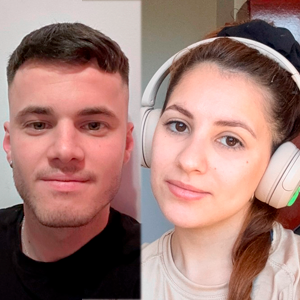
Activity in Spanish
In this talk, we'll explore how to improve the visual quality of our interfaces by combining three pillars: Storybook, for isolating and documenting components; Percy, for automated visual testing and detecting subtle changes across browsers; and Artificial Intelligence, for analyzing visual differences and generating clear summaries in natural language. We'll show how to integrate these into a CI/CD pipeline that runs Percy after each change, feeds an AI model, and produces actionable visual reports. The goal: smarter, faster, and more scalable visual testing.

Activity in Spanish
Based on the phrase "three sad tigers," let's talk about the practice of the three friends that teams use to build a quality product, and how to take quality to the next level through conversations, allowing the team to mature and preemptively assess the aspects that sometimes go unspoken when teams feel like they're at odds with each other.

Activity in Spanish
In this talk, I want to share how the Shift Left approach has changed the way I understand and apply quality in projects. I'll talk about the importance of involving testing from the earliest stages of software development, not only to find bugs, but to prevent them and generate value from the start. I'll show how this mindset improves collaboration between QA, development, and business, and how, even in demanding environments like banking (my current field), it's possible to put it into practice. More than a technique, it's a way of working with focus, efficiency, and shared responsibility.

Activity in Spanish
In an increasingly digital world, where security breaches can compromise not only systems but also the reputation and continuity of organizations, ensuring information protection can no longer be the sole responsibility of the cybersecurity team. Software quality and security must go hand in hand from the early stages of development, and testing plays a key role in this mission. This talk presents a modern and practical approach to how to incorporate security testing into the software lifecycle, from design to deployment.

Activity in Spanish
We'll explore how BrowserStack's AI Agents automate and optimize the entire testing cycle, from bug detection to intelligent case prioritization, and facilitate the creation of accessible applications through testing on real devices that comply with standards like WCAG and ADA. The session will include a hands-on demonstration of how these AI agents are used in real-world testing scenarios.

Activity in Spanish
The objective of this talk is to explore how a testing team can function effectively without a formal leadership figure through the concept of distributed leadership. We'll look at a real-life example where team members assumed leadership roles based on their expertise in specific areas, such as automation, manual testing, processes, or business knowledge. We'll also reflect on the underlying conditions that enable distributed leadership to function harmoniously.


Accreditations | Coffee


Activity in English
Artificial Intelligence is rapidly becoming an accepted means of accelerating software engineering and testing activities. Many organizations have already integrated AI into their software development lifecycle, and the demand for AI-assisted engineering continues to grow year over year. A key motivating factor behind the demand is the promise of increased speed and efficiency through automation. Software testing is a prime candidate for AI acceleration due to the generally high costs and significant manual effort involved in validation and verification. As a result, we are seeing an exponential growth in the application and development of tools to support AI-driven test automation. But what does the adoption of AI-driven automation mean for the future of software testing? Is AI going to replace manual testers and/or test automation engineers? It seems like these questions are quickly growing old and repetitive because no one is providing definitive answers based on practical, real-world analysis. Join industry expert Tariq King as he takes you on a journey into the future of software testing. Tariq firmly believes that AI will take over software testing and permanently transform the quality engineering landscape. He postulates that the future of testing will be focused on evaluating human experiences, including testing digital, physical, and experiential touchpoints. In the age of AI, human experience testing will not just be viewed as a quality assurance function, but as a core component of an organization's business strategy. Welcome to the future of quality where AI specifies, designs, codes, and tests software, leaving the humans to do the one thing the machines can't – test the human experience.

Activity in Spanish
Quality is not a one-time activity or the sole responsibility of the tester: it is a sustained practice that is built collectively within the team. The QPAM (Quality Practices Assessment Model) proposes a structured way to review, discuss, and improve how each team approaches quality in their daily work. In this talk, I will share how to use QPAM as a tool to enhance quality strategies from within the team: by triggering honest conversations about what we do, what we don't do, and why. We will see how QPAM helps us gain awareness of the current state of our practices, strengthen collaboration, and promote real improvements aligned with both the technical needs of the context and business objectives.
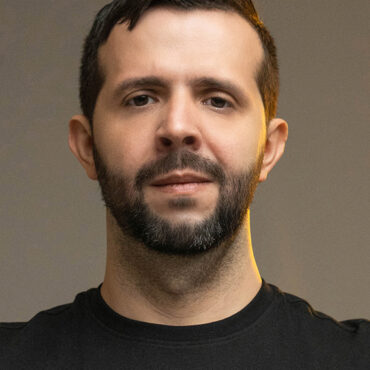
Activity in Spanish
During this talk, you'll discover the importance of mocks for your integration tests and how developers can create different mock scenarios without needing to know the other microservices. Most developers simulate external interactions using a mock library within their code, which creates a false sense that everything is working correctly in the microservice. What happens if there's a bug in the code the developers simulated? You'll see a brief demonstration where an application has integration tests using a real microservice, and how, using WireMock, developers can create different scenarios, such as introducing latency into the response, generating exceptions in specific situations, or returning different responses based on request parameters.

Activity in Spanish
The growing adoption of AI and LLM models with ever-increasing capabilities requires Quality teams to evolve from a deterministic approach to a probabilistic one, detecting biases and monitoring unwanted behavior in production, while maintaining the critical, analytical, and inquisitive capacity that characterizes us. This talk will address the challenges that the arrival of AI has brought to our specialty and its main opportunities for improvement in areas such as data quality, explainability, and bias identification.
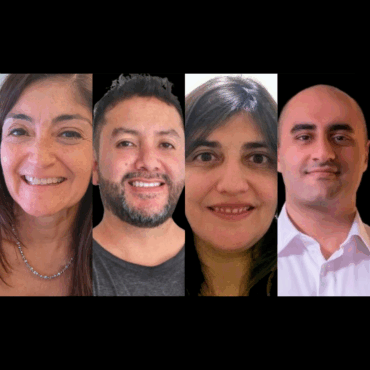
Activity in Spanish
We are experiencing a transformative time in the banking industry: advancing technology, mergers between banks and increasingly demanding users, and artificial intelligence in more and more contexts. In this context, QA teams face the challenge of maintaining quality, adapting to change, and demonstrating their value. In this panel, we will discuss what this reality is like from the inside: what technical decisions are made, how quality is scaled in complex structures, and what role QA plays in today's banking. Panelists: Natalia Higueret, Ruben Aguirre, Silvina Miranda, and Mehran Nazar. Moderated by Cecilia Benassi.

Activity in Spanish
In this talk, we'll introduce what an MCP is and why they're revolutionizing our everyday tools. Through a hands-on demo, we'll explore different types of MCPs and their specific uses for testers. We'll cover how to query complex databases in natural language with MCP SQL and how to simplify collaborative work on projects with GitHub MCP. We'll also explore how these AI-powered tools can improve the efficiency, accuracy, and agility of your testing workflow.

Activity in Spanish
In this talk, we explore the evolution of software testing from traditional approaches to a new era powered by Artificial Intelligence. Through key steps, we show how AI can automatically generate test cases, detect errors before they occur, analyze results more efficiently, and dynamically adapt to system changes. We also highlight the role of intelligent assistants and the importance of adopting a culture of continuous learning in QA. This transition not only improves software speed and quality but also redefines the tester's role as a strategic professional in the digital age.

Activity in Spanish
We're living in the era of AI, and we naturally want to incorporate AI into QA, but do we really know how to leverage it? In this talk, I want to open an honest conversation about the key questions before implementing a solution: What do we want it for? What do we expect it to solve? How do we know it's working? I'll also share some real-life examples and challenges I've encountered along the way. The idea isn't to talk about tools, but rather how to use AI judiciously, with focus, and with purpose... not just because it's trendy.

Activity in Spanish
BDD is a practice that is growing in popularity, but its adoption is not trivial. This is partly because it involves the use of new tools, but also because it requires changes in terms of processes and collaboration dynamics. In this talk, I will share several recommendations based on more than 10 years of experience using and teaching BDD. We will cover topics such as scenario identification, scenario writing with Gherkin, and their subsequent automation. The talk is primarily aimed at testers, developers, functional analysts, and business specialists.

Activity in Spanish
In this talk, we'll explore the fundamentals of automated testing, focusing on the automation pyramid and its various layers. We'll explore how artificial intelligence can be integrated into each of these layers to enhance its effectiveness. We'll also cover the concept of an automation platform, understanding what it takes to build one and how to practically apply AI to achieve concrete results. Through this integration, the goal will be to move toward a more robust, flexible, and scalable automated testing strategy.

Activity in Spanish
In this talk, we'll explore the technical and strategic challenges of this type of transition, focusing on the critical role of Quality in ensuring a secure, efficient, and scalable integration.

Activity in Spanish
We invite you to explore the AI-based accelerators we've developed at NTT DATA, designed to boost efficiency at every stage of the testing lifecycle. We'll take test automation to the next level, reducing time and effort while boosting quality. Scenario generation, automation, and much more. A path to infinite efficiency? Come learn about them and be amazed.


Activity in Spanish
The professional life of a QA can be compared to a video game: advancing levels, facing challenges, overcoming monsters and bosses. Just like in RPGs, each person gains experience, skills, tools, and allies to face challenges in their work, finances, and personal lives. The talk will be filled with power-ups, extra lives, and levels to learn. Get ready to level up and conquer your professional life like a true QA hero!

Activity in Spanish
Artificial intelligence is redefining testing: it accelerates tasks, enhances skills, and enables faster delivery of quality-based value. In this talk, I will present concrete metrics to measure this impact and clearly communicate it to decision-making levels. I will also share real-life cases where functional testers scaled their contributions with AI and how to support this change process. We will also discuss how to start with low risk, enabling results from the first use. This talk is designed for quality leaders, evolving testers, and organizations seeking frictionless transformation.
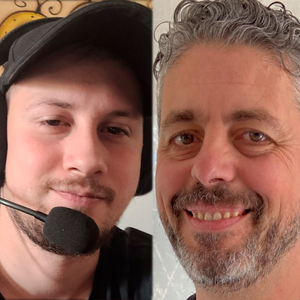
Activity in Spanish
Something has changed. In this demo, we'll learn how to build automated tests powered by Lippia's MCP Server. You give it a user story... and it does the rest: interpret, navigate, generate features, glue code, execute, and report. A new way of automating tests that challenges everything known. It's not science fiction. It's the beginning of an era where AI writes, executes, and reports its own tests. Are you ready to see how testing transforms?

Activity in Spanish
We'll explore how Quality Engineering Insights (QEI) provides comprehensive visibility into key metrics such as coverage, defect leakage, stability, and cycle time, while Test Reporting & Analytics (TRA) provides centralized reporting, AI-powered failure analysis, custom dashboards, and automated Quality Gates. The session includes a hands-on demonstration of how these AI agents drive real improvements in test cycle efficiency and quality.

Activity in English and Spanish
Moderated by: Javier Re / Panelists: Tariq King and Dionny Santiago.

Activity in Spanish
GitHub redefines development innovation by integrating DevSecOps and AI to automate, secure, and optimize applications at every stage. In this hands-on session, we'll review how, with the help of Copilot, we can automate pipelines, secure every commit, improve our code quality and best practices, and at the same time enhance real-time collaboration, transforming challenges into opportunities for innovation and competitiveness. Discover practical strategies that transform challenges into competitive advantages and position you at the forefront of the digital revolution. Accelerate your success!

Activity in Spanish
The talk will focus on the use of MCP Midscene, an artificial intelligence agent designed to automate web test creation. It will explore how Midscene converts natural language instructions into complete end-to-end tests, without the need to manually write code. It will explain how the agent interacts directly with the browser to perform actions and, at the same time, generates the corresponding Playwright code. Finally, it will discuss how these tests are saved in the repository for use in continuous integration workflows, enabling significant savings in time and resources in test automation and reporting.

Activity in Spanish
What if the backlog could talk? What if your IDE could understand the context, write tests, suggest edge cases, and help you test software without losing focus? People often cite a lack of time and technical knowledge to start automating tests. In this talk, I'll show you how to break out of that death spiral without needing to be an expert. I'll show you how to automate tests in an AI-first way using Playwright's MCP Server and GitHub, all orchestrated by agentic IDEs and powered by robust pre-prompting rules that will prevent you from falling into the usual hallucination.

Activity in Spanish
The emergence of generative AI models in our applications has not only changed what systems do, but also how we should test them. Traditional testing, based on fixed outputs and repeatable behaviors, is no longer sufficient when faced with responses that can vary with each interaction. In this talk, we will share how we at QAlified are addressing this new challenge: we started by evaluating responses manually, encountered significant challenges, and built an automated approach that allows us to use AI to evaluate AI.

Activity in Spanish
As a testing leader, I understand that software quality requires balance. Our processes must avoid inertia (the "calm") and chaos (the "hurricane"). The key is to ask ourselves: What does quality mean for our software and why do we pursue it? Are our current processes truly contributing to that goal? Is the team aligned and working collaboratively to achieve it? Are we comprehensively covering all aspects of quality? Often, the answers to these questions lead us to "shuffle and deal again." It's about redefining processes to adapt to the reality of each team, ensuring that quality is achieved, maintained, and visible. The answers often lead us to the conclusion that we need to completely rethink our processes. This talk focuses on how, through real-life experiences in companies in the region, we managed to reformulate and adapt quality strategies so that teams achieve their maximum performance.


Activity in Spanish
In this talk, we'll explore the value of data as a key tool for making objective decisions in the field of quality. We'll see how well-defined indicators not only help us detect deviations and opportunities for improvement, but also strengthen conversations by providing concrete evidence to support our actions.

Activity in Spanish
We will explore how an organization's growth is impacted by testing and how it depends on its leadership. Herman Hesse's Steppenwolf is used as a guide to discuss the internal challenges we face as technical leaders when we fail to recognize ourselves as strategic agents. I propose a vision where testing drives organizations with a human sense. This proposal connects the evolution of leadership with the demands of 4.0 and 5.0 organizations, reminding us that a company doesn't evolve if its leaders don't first transform.

 Rodrigo Damián Sosa Carballido
Rodrigo Damián Sosa Carballido
Activity in Spanish
In a world where development and QA teams work from different countries, how can geographic diversity be turned into an advantage for the software lifecycle? In this closing talk, Raissa and Rodrigo will discuss what it means to work as a single team when we're spread across the globe. With specialized pods and units, a touch of AI, and DevSecOps practices, they will show how to break down silos, gain speed, and maintain quality. More than just a methodology, it's a new way of collaborating in the digital age.



Activity in English
Artificial Intelligence is rapidly becoming an accepted means of accelerating software engineering and testing activities. Many organizations have already integrated AI into their software development lifecycle, and the demand for AI-assisted engineering continues to grow year over year. A key motivating factor behind the demand is the promise of increased speed and efficiency through automation. Software testing is a prime candidate for AI acceleration due to the generally high costs and significant manual effort involved in validation and verification. As a result, we are seeing an exponential growth in the application and development of tools to support AI-driven test automation. But what does the adoption of AI-driven automation mean for the future of software testing? Is AI going to replace manual testers and/or test automation engineers? It seems like these questions are quickly growing old and repetitive because no one is providing definitive answers based on practical, real-world analysis. Join industry expert Tariq King as he takes you on a journey into the future of software testing. Tariq firmly believes that AI will take over software testing and permanently transform the quality engineering landscape. He postulates that the future of testing will be focused on evaluating human experiences, including testing digital, physical, and experiential touchpoints. In the age of AI, human experience testing will not just be viewed as a quality assurance function, but as a core component of an organization's business strategy. Welcome to the future of quality where AI specifies, designs, codes, and tests software, leaving the humans to do the one thing the machines can't – test the human experience.

Activity in Spanish
Quality is not a one-time activity or the sole responsibility of the tester: it is a sustained practice that is built collectively within the team. The QPAM (Quality Practices Assessment Model) proposes a structured way to review, discuss, and improve how each team approaches quality in their daily work. In this talk, I will share how to use QPAM as a tool to enhance quality strategies from within the team: by triggering honest conversations about what we do, what we don't do, and why. We will see how QPAM helps us gain awareness of the current state of our practices, strengthen collaboration, and promote real improvements aligned with both the technical needs of the context and business objectives.

Activity in Spanish
We are experiencing a transformative time in the banking industry: advancing technology, mergers between banks and increasingly demanding users, and artificial intelligence in more and more contexts. In this context, QA teams face the challenge of maintaining quality, adapting to change, and demonstrating their value. In this panel, we will discuss what this reality is like from the inside: what technical decisions are made, how quality is scaled in complex structures, and what role QA plays in today's banking. Panelists: Natalia Higueret, Ruben Aguirre, Silvina Miranda, and Mehran Nazar. Moderated by Cecilia Benassi.

Activity in Spanish
We're living in the era of AI, and logically, we want to incorporate AI into QA, but do we really know how to take advantage of it? In this talk, I want to open an honest conversation about the key questions before implementing a solution: What do we want it for? What do we expect it to solve? How do we know it's working? I'll also share some real-life examples and challenges I encountered along the way. The idea isn't to talk about tools, but rather how to use AI judiciously, with focus, and with purpose... not just because it's trendy.

Activity in Spanish
In this talk, we'll explore the technical and strategic challenges of this type of transition, focusing on the critical role of Quality in ensuring a secure, efficient, and scalable integration.

Activity in Spanish
The professional life of a QA can be compared to a video game: advancing levels, facing challenges, overcoming monsters and bosses. Just like in RPGs, each person gains experience, skills, tools, and allies to face challenges in their work, finances, and personal lives. The talk will be filled with power-ups, extra lives, and levels to learn. Get ready to level up and conquer your professional life like a true QA hero!

Activity in Spanish
Artificial intelligence is redefining testing: it accelerates tasks, enhances skills, and enables faster delivery of quality-based value. In this talk, I will present concrete metrics to measure this impact and clearly communicate it to decision-making levels. I will also share real-life cases where functional testers scaled their contributions with AI and how to support this change process. We will also discuss how to start with low risk, enabling results from the first use. This talk is designed for quality leaders, evolving testers, and organizations seeking frictionless transformation.

Activity in English and Spanish
Moderated by: Javier Re / Panelists: Tariq King and Dionny Santiago.

Activity in Spanish
What if the backlog could talk? What if your IDE could understand the context, write tests, suggest edge cases, and help you test software without losing focus? People often talk about the lack of time and technical knowledge to start automating tests. In this talk, I'll show you how to break out of that death spiral without needing to be an expert. I'll show you how to automate tests in an AI-first way using Playwright's MCP Server and GitHub, all orchestrated by agentic IDEs and powered by robust pre-prompting rules that will prevent you from falling into the usual hallucination.

Activity in English
In this talk, we'll explore the value of data as a key tool for making objective decisions in the field of quality. We'll see how well-defined indicators not only help us detect deviations and opportunities for improvement, but also strengthen conversations by providing concrete evidence to support our actions.


Activity in Spanish
During this talk, you'll discover the importance of mocks for your integration tests and how developers can create different mock scenarios without needing to know the other microservices. Most developers simulate external interactions using a mock library within their code, which creates a false sense that everything is working correctly in the microservice. What happens if there's a bug in the code the developers simulated? You'll see a brief demonstration where an application has integration tests using a real microservice, and how, using WireMock, developers can create different scenarios, such as introducing latency into the response, generating exceptions in specific situations, or returning different responses based on request parameters.

Activity in Spanish
In this talk, we'll introduce what an MCP is and why they're revolutionizing our everyday tools. Through a hands-on demo, we'll explore different types of MCPs and their specific uses for testers. We'll cover how to query complex databases in natural language with MCP SQL and how to simplify collaborative work on projects with GitHub MCP. We'll also explore how these AI-powered tools can improve the efficiency, accuracy, and agility of your testing workflow.

Activity in Spanish
BDD is a practice that is growing in popularity, but its adoption is not trivial. This is partly because it involves the use of new tools, but also because it requires changes in terms of processes and collaboration dynamics. In this talk, I will share several recommendations based on more than 10 years of experience using and teaching BDD. We will cover topics such as scenario identification, scenario writing with Gherkin, and their subsequent automation. The talk is primarily aimed at testers, developers, functional analysts, and business specialists.

Activity in Spanish
We invite you to explore the AI-based accelerators we've developed at NTT DATA, designed to boost efficiency at every stage of the testing lifecycle. We'll take test automation to the next level, reducing time and effort while boosting quality. Scenario generation, automation, and much more. A path to infinite efficiency? Come learn about them and be amazed.

Activity in Spanish
Something has changed. In this demo, we'll learn how to build automated tests powered by Lippia's MCP Server. You give it a user story... and it does the rest: interpret, navigate, generate features, glue code, execute, and report. A new way of automating tests that challenges everything known. It's not science fiction. It's the beginning of an era where AI writes, executes, and reports its own tests. Are you ready to see how testing transforms?

Activity in Spanish
GitHub redefines development innovation by integrating DevSecOps and AI to automate, secure, and optimize applications at every stage. In this hands-on session, we'll review how, with the help of Copilot, we can automate pipelines, secure every commit, improve our code quality and best practices, and at the same time enhance real-time collaboration, transforming challenges into opportunities for innovation and competitiveness. Discover practical strategies that transform challenges into competitive advantages and position you at the forefront of the digital revolution. Accelerate your success!

Activity in Spanish
The emergence of generative AI models in our applications has not only changed what systems do, but also how we should test them. Traditional testing, based on fixed outputs and repeatable behaviors, is no longer sufficient when faced with responses that can vary with each interaction. In this talk, we will share how we at QAlified are addressing this new challenge: we started by evaluating responses manually, encountered significant challenges, and built an automated approach that allows us to use AI to evaluate AI.

Activity in Spanish
We will explore how an organization's growth is impacted by testing and how it depends on its leadership. Herman Hesse's Steppenwolf is used as a guide to discuss the internal challenges we face as technical leaders when we fail to recognize ourselves as strategic agents. I propose a vision where testing drives organizations with a human sense. This proposal connects the evolution of leadership with the demands of 4.0 and 5.0 organizations, reminding us that a company doesn't evolve if its leaders don't first transform.

Activity in Spanish
The growing adoption of AI and LLM models with ever-increasing capabilities requires Quality teams to evolve from a deterministic approach to a probabilistic one, detecting biases and monitoring unwanted behavior in production, while maintaining the critical, analytical, and inquisitive capacity that characterizes us. This talk will address the challenges that the arrival of AI has brought to our specialty and its main opportunities for improvement in areas such as data quality, explainability, and bias identification.

Activity in Spanish
In this talk, we explore the evolution of software testing from traditional approaches to a new era powered by Artificial Intelligence. Through key steps, we show how AI can automatically generate test cases, detect errors before they occur, analyze results more efficiently, and dynamically adapt to system changes. We also highlight the role of intelligent assistants and the importance of adopting a culture of continuous learning in QA. This transition not only improves software speed and quality but also redefines the tester's role as a strategic professional in the digital age.

Activity in Spanish
In this talk, we'll explore the fundamentals of automated testing, focusing on the automation pyramid and its various layers. We'll explore how artificial intelligence can be integrated into each of these layers to enhance its effectiveness. We'll also cover the concept of an automation platform, understanding what it takes to build one and how to practically apply AI to achieve concrete results. Through this integration, the goal will be to move toward a more robust, flexible, and scalable automated testing strategy.

Activity in Spanish
We'll explore how Quality Engineering Insights (QEI) provides comprehensive visibility into key metrics such as coverage, defect leakage, stability, and cycle time, while Test Reporting & Analytics (TRA) provides centralized reporting, AI-powered failure analysis, custom dashboards, and automated Quality Gates. The session includes a hands-on demonstration of how these AI agents drive real improvements in test cycle efficiency and quality.

Activity in Spanish
The talk will focus on the use of MCP Midscene, an artificial intelligence agent designed to automate web test creation. It will explore how Midscene converts natural language instructions into complete end-to-end tests, without the need to manually write code. It will explain how the agent interacts directly with the browser to perform actions and, at the same time, generates the corresponding Playwright code. Finally, it will discuss how these tests are saved in the repository for use in continuous integration workflows, enabling significant savings in time and resources in test automation and reporting.

Activity in Spanish
As a testing leader, I understand that software quality requires balance. Our processes must avoid inertia (the "calm") and chaos (the "hurricane"). The key is to ask ourselves: What does quality mean for our software and why do we pursue it? Are our current processes truly contributing to that goal? Is the team aligned and working collaboratively to achieve it? Are we comprehensively covering all aspects of quality? Often, the answers to these questions lead us to "shuffle and deal again." It's about redefining processes to adapt to the reality of each team, ensuring that quality is achieved, maintained, and visible. The answers often lead us to the conclusion that we need to completely rethink our processes. This talk focuses on how, through real-life experiences in companies in the region, we managed to reformulate and adapt quality strategies so that teams achieve their maximum performance.

 Rodrigo Damián Sosa Carballido
Rodrigo Damián Sosa Carballido
Activity in Spanish
In a world where development and QA teams work from different countries, how can geographic diversity be turned into an advantage for the software lifecycle? In this closing talk, Raissa and Rodrigo will discuss what it means to work as a single team when we're spread across the globe. With specialized pods and units, a touch of AI, and DevSecOps practices, they will show how to break down silos, gain speed, and maintain quality. More than just a methodology, it's a new way of collaborating in the digital age.